" Toek Radio ," which started at Tokushima Nature School Toek , is an online media that answers questions about child-rearing and deadlocks in the educational field in radio format. We are delivering the trial broadcast recorded in July in two parts.
The speakers were Toek's CEO, Tatsuro Ise, and staff members Funa-san and Poo-san. Also appearing as a guest was Monosus' CEO, Hayashi, who helps with equipment and distribution support.
In the first part , the four of them reminisced about how they met and how the radio show came about.
In this second part, we will answer questions sent in by listeners.
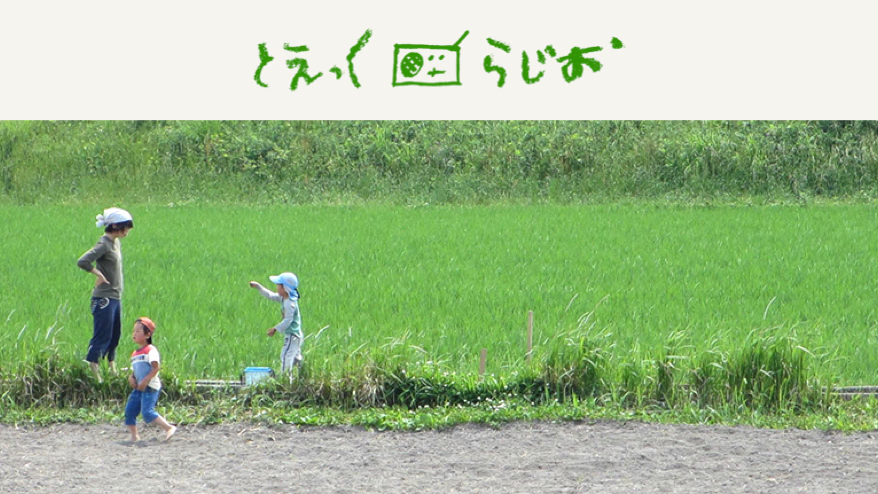
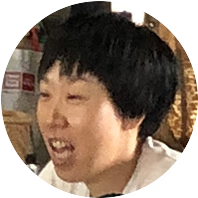 Carp
Carp- Well, we only have 10 minutes left, so I think we'll do the main Q&A corner of Toec Radio.
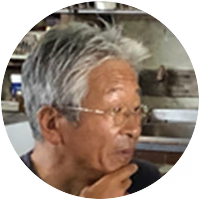 Ise
Ise- Let's do it!
 Carp
Carp- This was sent in by a radio user named U-san. She is a woman in her 40s from Japan. It's a short piece of text, but I'll read it out loud.
"There are people at work who don't agree with the way I do things."
I guess your question is how to respond.
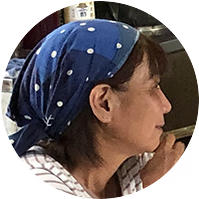 Pooh
Pooh- There are people who are not satisfied with the way they do things, huh? Yes, there are.
 Carp
Carp- Pooh, do you ever feel like this person isn't satisfied with the way I do things?
 Pooh
Pooh- Yes, there are so many people out there who feel that way.
 Carp
Carp- What's it like?
 Pooh
Pooh- Whether it's a malfunction, a sense of discomfort, or a feeling like you can't get close, you feel that atmosphere first.
So, if I have a problem, I'll do something about it. For example, I'll ask, "Hey, I'm feeling a bit uncomfortable right now. What do you think?" I'll do it when the time comes, in a way that makes me feel comfortable.
 Carp
Carp- I see. Tatsuro, it seems like you want to say something.
 Ise
Ise- I want to say.
 Everyone
Everyone- (Laughs) Say it, say it.
 Ise
Ise- First of all, I think it's crucial to decide in which direction you want to point yourself.
In this case, there are people who are "not convinced." In other words, one is to want others to be convinced, or, to put it more strongly, to want to change the other person to fit your own wishes.
Another question is, do you try to understand the feelings and thoughts of those who are "not convinced"?
 Carp
Carp- Do you want to be convinced, or do you want to understand?
 Ise
Ise- Yes. Well, it's about walking in someone else's shoes.
To be convinced gives the impression of "I understand, I get it!", but "trying to understand" in education or in relationships with others is different.
Rather than emotionally saying "I know, I know!" when faced with different values and thoughts, it's about how much imagination you can have to realize "I don't understand this at all" or "This person and I are completely different."
You have to imagine what a person is like. I think that requires a lot of imagination.
 Carp
Carp- That's wearing someone else's shoes.
 Ise
Ise- oh yeah.
The other day, the Asahi Shimbun newspaper featured a quote from Professor Seiichi Washida. Pascal said, "In the end, people succumb to authority and power."
In response to Pascal's words, Professor Washida said, "This means that we are free to listen to the voices of the smallest and weakest." It's so thrilling!
 Everyone
Everyone- Hahaha (lol).
 Ise
Ise- So I think it's about how you react to people saying things like, "That's not right!" or "You're wrong!" and how you create that situation.
Up until now, I've been talking as if I've done it perfectly, but I'm a pretty hardcore mountain leader (laughs). But I think I'm still on my way to understanding.
 Carp
Carp- Is there anything I can help you with, Hayashi-san?
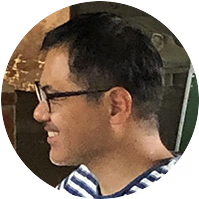 Hayashi
Hayashi- It's difficult, but since you said that "there are people who are not satisfied with the way things are done," I think one reason is probably that the way of working is different.
 Carp
Carp- The way you and I do it.
 Hayashi
Hayashi- Yes. The work methodologies are different. So, the issue of whether the methodologies are similar or different and whether the relationship is good or bad can easily get mixed up.
This time, the starting point is that the methodology is different. I personally think that this is quite important when doing work.
For example, there are three executives in my company, but they all have completely different methodologies. Because our methodologies are so different, we can't get along even when we talk, and that's sometimes been a struggle.
 Carp
Carp- Oh, I see.
 Hayashi
Hayashi- So, this was over 10 years ago. The vice president and I were talking one-on-one at a cafe in Jiyugaoka, outside.
"Let's stop thinking about the option of severing ties or not working together if something happens."
 Pooh
Pooh- It's easy to choose not to do it together.
 Hayashi
Hayashi- If you're prepared to end the relationship if push comes to shove, you'll probably imagine parting words in your head, like "I'm quitting!" or "You need to stop!" or "I'll never do it again!" But that's when it ends.
I said, "Let's stop that and start by talking about the differences between us." From there, we made progress, for example, I learned that the other person notices things that I don't notice.
So, a different methodology is an opportunity.
 Pooh
Pooh- It will become a strength.
 Hayashi
Hayashi- Yes. Whether a relationship is good or bad is just a coincidence, and it can't be helped.
I feel like it's a bit of a waste to only be able to work with people who have a good relationship with you and share the same methodology. It's difficult, though. So I think it's better not to focus so much on making relationships work.
 Ise
Ise- I think so too. I thought this guy was a good president. He doesn't take the differences in methodology lightly.
This brings me back to the fact that Mr. Hayashi and all the other employees came to TOEC one time.
 Carp
Carp- Yes, there are about 60 Monosus employees at this farm. Some even came from Thailand.
 Ise
Ise- At that time, I said that I wanted to use my position to show how I was feeling at the time in my first move.
No matter how you look at it, it's obvious that Hayashi wanted to bring everyone here, but there were bound to be some people who didn't want to come. And by making that obvious, it would revitalize the place and create a place for them to belong.
Then, as Mr. Hayashi mentioned earlier, the vice president sitting opposite him stood in the complete opposite position, saying, "I didn't want to come at all."
 Hayashi
Hayashi- Yeah, I had absolutely no motivation (laughs).
 Ise
Ise- ``Why in the middle of a rice field like this?''
I thought, "Oh man, he stood up!" He could have left the group, but he stood up and said, "I didn't want to come at all." When I let him speak on the microphone, he was like, "Hayashi is like this, and like that." Everyone was just going crazy.
But I think it saved us all. It felt like the circle was finally recognized as a place where we belonged.
 Pooh
Pooh- It gets to the stage where you're like, "Is it okay to express these feelings?"
 Carp
Carp- ......Yes, did that answer your question? Time is running out, so I'd like to wrap things up here for now. I received some comments and other questions, but I don't have time for them at all, so I'm sorry.
We are still accepting questions from you. In addition to questions about education and child-rearing, please send in your questions about the world and your simple thoughts. We hope to respond to them.
This broadcast was brought to you by Nature School TOEC, with the tremendous cooperation of Monosus Co., Ltd., who showed their spirit of adventure and playfulness.
Well, see you next time!
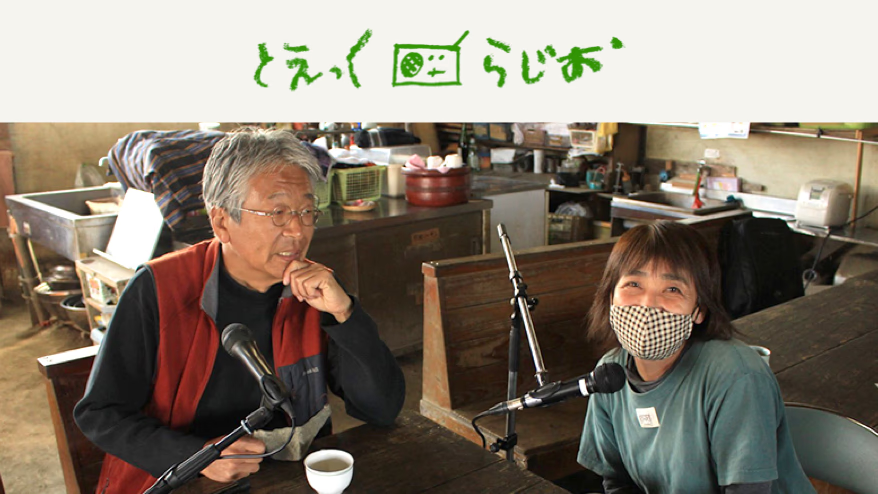
TOEK and MONOSUS. Although what they do is completely different, it was an hour that made me feel that they share a common root.
Toec Radio will continue in the future. We are also running a crowdfunding campaign to raise funds to operate the program until August 6th.
It explains how the radio started and what we want to achieve in the future, so please take a look if you're interested.
The second trial broadcast of Toec Radio can also be viewed on Facebook video streaming .